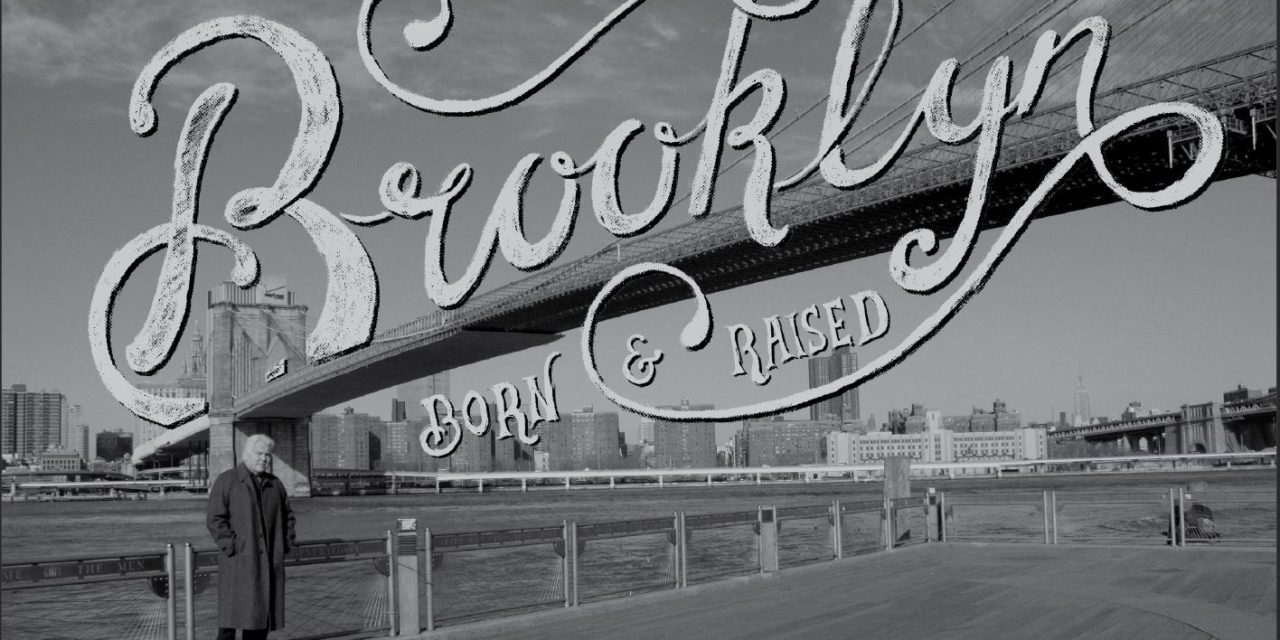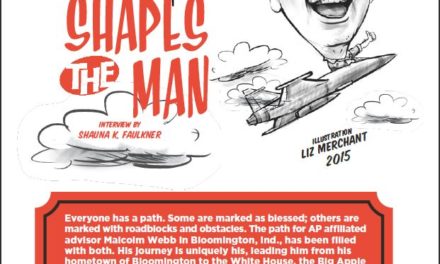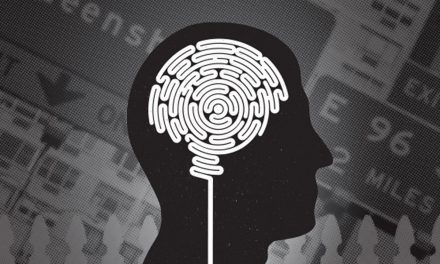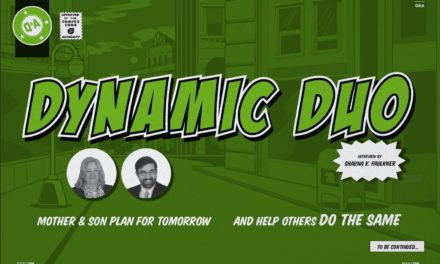
FREE 7.1 Q&A – Douglas Schiffmiller
Born and raised in New York’s southernmost borough, APFS advisor Douglas Schiffmiller of Retirement Help Group lives and breathes Brooklyn. He champions independence with a quiet determination to not only succeed, but thrive in the community that’s afforded him so much joy. As one of the premier, independent financial planners in the area, he continues to build his practice on the streets he walked as a child. For Schiffmiller, there really is no place like home.
To view the full article please register below:
FREE 7.1 Q&A – Douglas Schiffmiller
Brooklyn born and raised.
Born and raised in New York’s southernmost borough, APFS advisor Douglas Schiffmiller of Retirement Help Group lives and breathes Brooklyn. He champions independence with a quiet determination to not only succeed, but thrive in the community that’s afforded him so much joy. As one of the premier, independent financial planners in the area, he continues to build his practice on the streets he walked as a child. For Schiffmiller, there really is no place like home.
FREE: How did you begin your career in financial services?
Douglas Schiffmiller: In 1987 I opened an office within an Allstate agency in Brooklyn. I had no degree in finance; I just wanted to own and operate my own office. I started with insurance and a few mutual funds, and over time it became very successful, growing from zero-base to about $4 million in property and casualty premium. Because of the change in technology and rise of the Internet, in 2000 the company terminated all their agents. Fortunately, a colleague at Allstate had been bringing me to seminars and introduced me into the financial world; the idea was to learn a different aspect of the business in case the day came where we’d be let go from the agency. When that day did come, I was ready.
FREE: So where did you go from there and how was the transition?
DS: In 2000, I transitioned to FSC and was there until 2008. It was during that time I affiliated myself with Ed Slott and, through his expertise and training, I accelerated in the business. But the first few years were very difficult.
FREE: For those unfamiliar with Ed Slott, can you share a little bit about the program?
DS: Ed is basically a CPA out on Long Island in New York. He does public speaking discussing tax strategies. Twice a year, those affiliated with Ed meet in seminars and he teaches us strategies to reduce tax and provide tax free income. Prospects go to his Web site, enter their zip code, and my name and location comes up for all of Brooklyn as an elite advisor.
FREE: So Ed Slott helps refer prospects; what do you do as an advisor to keep them?
DS: Before I do anything with them, I put them in front of my CPA— who’s a financial expert—and he prepares a whole professional plan. Then I take that plan and come up with the appropriate solutions, whether it’s annuities, life insurance, alternatives or managed accounts.
FREE: Do you manage your own accounts?
DS: No, I use third-party managers. I’ve learned alot through working with them. Personally, I think it’s the only way to go; you really can’t do it yourself. The world is not in one place, it’s not just American stocks and bonds anymore. Also, everything comes and goes in cycles, so what’s good today could be bad tomorrow. For someone to really be on top of it, they’d have to live and breathe this stuff. I’d rather be with my clients, gathering new assets.
FREE: Tell us about your client relationships. What’s your approach?
DS: Basically, I run a very quiet practice where clients know they are safe and can sleep at night. I reassure them and stay in contact with them all the time, which is very important. You really have to know your clients.
FREE: How did you explain the recent recession to your clients, and how did you help protect them and their investments?
DS: I’m very honest and direct. I told them I didn’t cause the problem or create the recession, but that I was going to try my hardest to take care of them; once they heard that from me they were reassured. I kept them where they were, added a little alternatives, stayed the course and they made their money back. I recognize that when things go wrong—9/11, corrections, recessions and corporate scandals—all the mistrust that’s out there becomes an opportunity for me.
FREE: Can you explain what you mean?
DS: Well, when things are good it can be harder to have a conversation with someone; they’re content, they’re happy. But when things start to go wrong, they tend to look for solutions: How do I stop this, or how do I prevent that in the
future? I learned how to assure clients when things go wrong by providing solutions. The environment wasn’t always like that though; I think what really changed was the recession. In short, my practice evolved more towards providing solutions instead of selling straight stocks, bonds or returns.
FREE: So who are the players at Retirement Help Group?
DS: First, my registered assistant Rosalie Ciaio. Rosalie takes care of all the back office work. Together, we run the operation, but my network expands far beyond that; I have a CPA whom I’ve known for the past 25 years. He is also an elite advisor with Ed Slott. It’s a great partnership because he does the financial plan and I come up with the solutions. I also have a few lawyers I call on. We all work together and I think that’s the key.
FREE: You also work with a PNC causality firm. Tell us about that.
DS: Yes, Admiral Insurance. They were the landlord at my previous location and then they built the building we’re in now. I was looking to move to downtown Brooklyn and, after a meeting with them about the new space, we saw a bigger opportunity to work together. He doesn’t do any financials, I don’t do any insurance; we just work together and refer business back and forth. I’ve already got a 401(k) referral from them and we’ve only been here three weeks.
FREE: It sounds like you’ve arranged some key players to support your practice.
DS: Over time you develop a network. It doesn’t have to happen overnight; there needs to be a certain trust and also professionalism to work together. For someone starting out, my advice is to be patient; it takes time and the key to success is just to survive. As long as you survive, you got the next day.
FREE: What’s the best advice anyone’s given you?
DS: I would have to say it was my mom, who told me about being independent. I was just out of college and so excited to be working in manufacturing. I called her to tell her I created this display case for putting our product in front of customers in stores. I was really excited and happy about it and then she told me, no matter what you do, it’s still their business. From that moment on, it hit home for me. I never wanted to work for anyone and wanted to be independent. It was very good advice.
FREE: But independence comes with its challenges. What were they for you?
DS: Back in the days of Allstate, I was technically an employee so they covered most of my expenses. But when I left, I became independent and responsible for everything; I was on my own. But the feeling of independence … there’s nothing like it. You make your own decisions, benefit from your rewards and learn from your mistakes—as you learn from your mistakes, you grow stronger and better. As an independent, you are a true business owner. After 12 years, I feel very successful because I have a handle on it.
FREE: How did you ultimately end up at American Portfolios?
DS: When FSC was bought by AIG, I started to look. I went to a few B/Ds: NEXT financial, LPL and APFS. The reason I came here was because [APFS CEO] Lon Dolber met me both times, personally. Right away, I felt the warmth and comfort, and knew I could get things done here.
FREE: What motivates you to get things done, Doug?
DS: To be truly independent motivates me. No matter what it takes to be independent, even if I have to work around the clock, I’m going to remain so and have a lifestyle instead of going to a job. Once you have the ability to do that, life is pretty good. It’s not about money; the money comes. When you wake up every morning with a positive, good attitude, everything else just falls into place.
FREE: Tell us about Brooklyn. AP doesn’t have many advisors there!
DS: I’ve been here all my life. There have been ups and downs in Brooklyn, downs prior to [Mayor Rudolph] Giuliani coming to office. There was a time when I thought about leaving, going to Long Island, New Jersey, even Florida—what I call the sixth borough! All my brothers live there, but something kept me here. When I looked at homes on Long Island, I saw no one in the streets. Where I live, everyone’s walking around; you can walk to the corner. The community I grew up in, Benson Hurst, was small and everyone was on the street, no one locked their doors…it got really bad at one point, but Giuliani cleaned it up. Now look at it! Instead of kids wanting to move away, they are coming in: Greenpoint, Williamsburg, Park Slope, Red Hook…
FREE: Hurricane Sandy caused major damage to Brooklyn and surrounding areas; how did you and your neighbors fair during the storm?
DS: Living in Mill Basin Brooklyn for over 32 years, I never experienced the devastation around me and especially in the Rockaways. I was very fortunate to have minimal water damage. I was able to take in two families from the Rockaways who lost their homes and cars. We feel fortunate to have helped.
FREE: Does Retirement Help Group have a disaster plan in place?
DS: Yes, we have a fully functioning office in our home with computer and telephone access in case the office is out of service.
FREE: Tell us about your family.
DS: I have been married for 31 years with my wonderful wife, Caren, and two wonderful children, Allie who is 26 and Sara, 22. They both live and want to stay in Brooklyn.
FREE: What do you do in your spare time?
DS: I go to the gym, playbasketball…I got a new golden retriever, so that was a big change; it was the greatest thing I did. Of course, my kids always wanted to have a dog when they were younger, but we were busy traveling and it wouldn’t have been fair to the dog. A year and a half ago I decided to do it and it was perfect timing. Her name is Macie. Sometimes I take her to the office [laughs]. In the morning, she just looks at me with the ball in her mouth and is like, let’s go. A retriever is a very unique dog, very smart.
FREE: What does the future hold for you?
DS: Personally, I’m going to get myself in the best shape I’ve ever been in. Professionally, I want to build a self-sustaining practice by making a million dollars alone in trails. That’s my goal.
FREE: Best of luck to you, Doug.
DS: Thank you.












